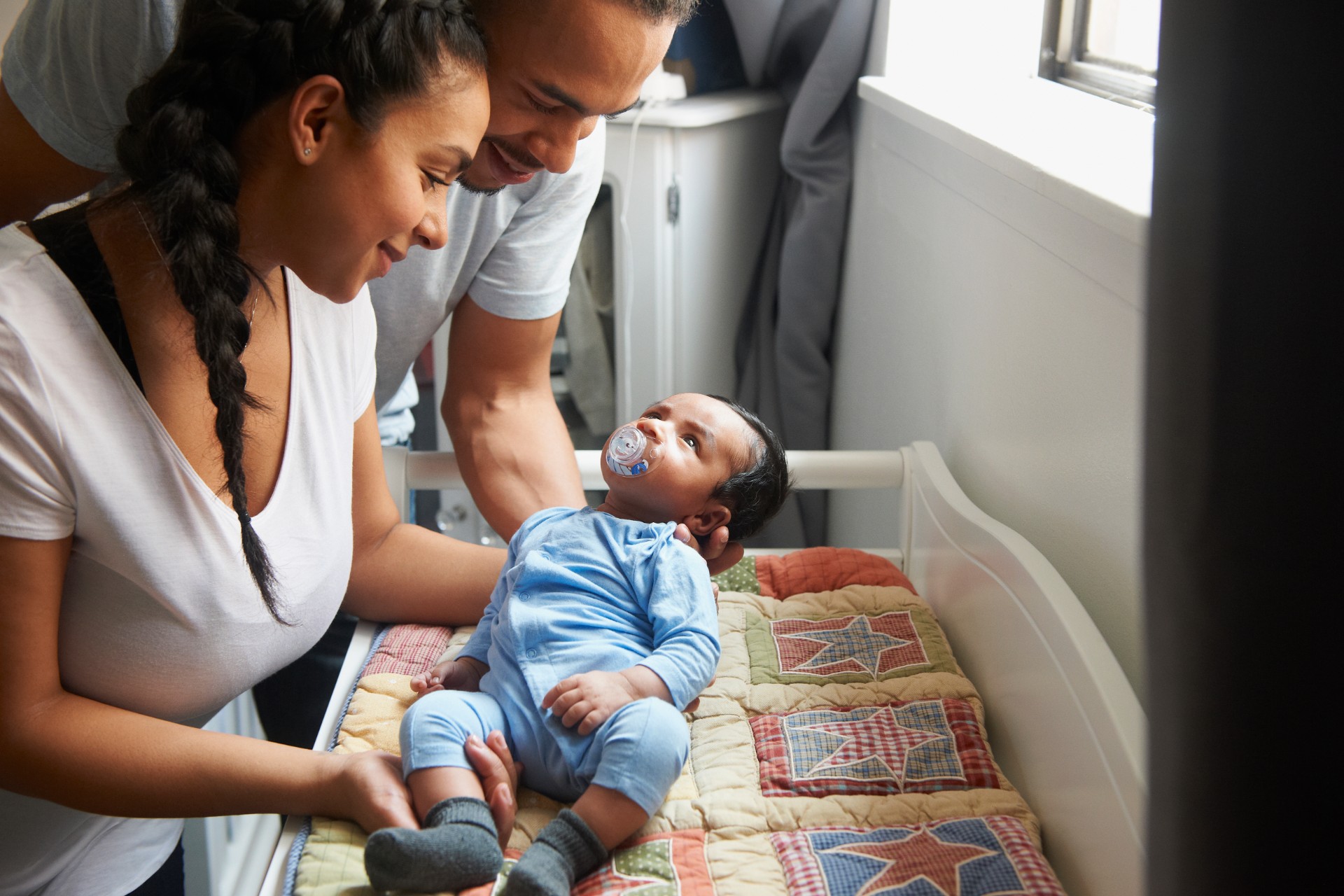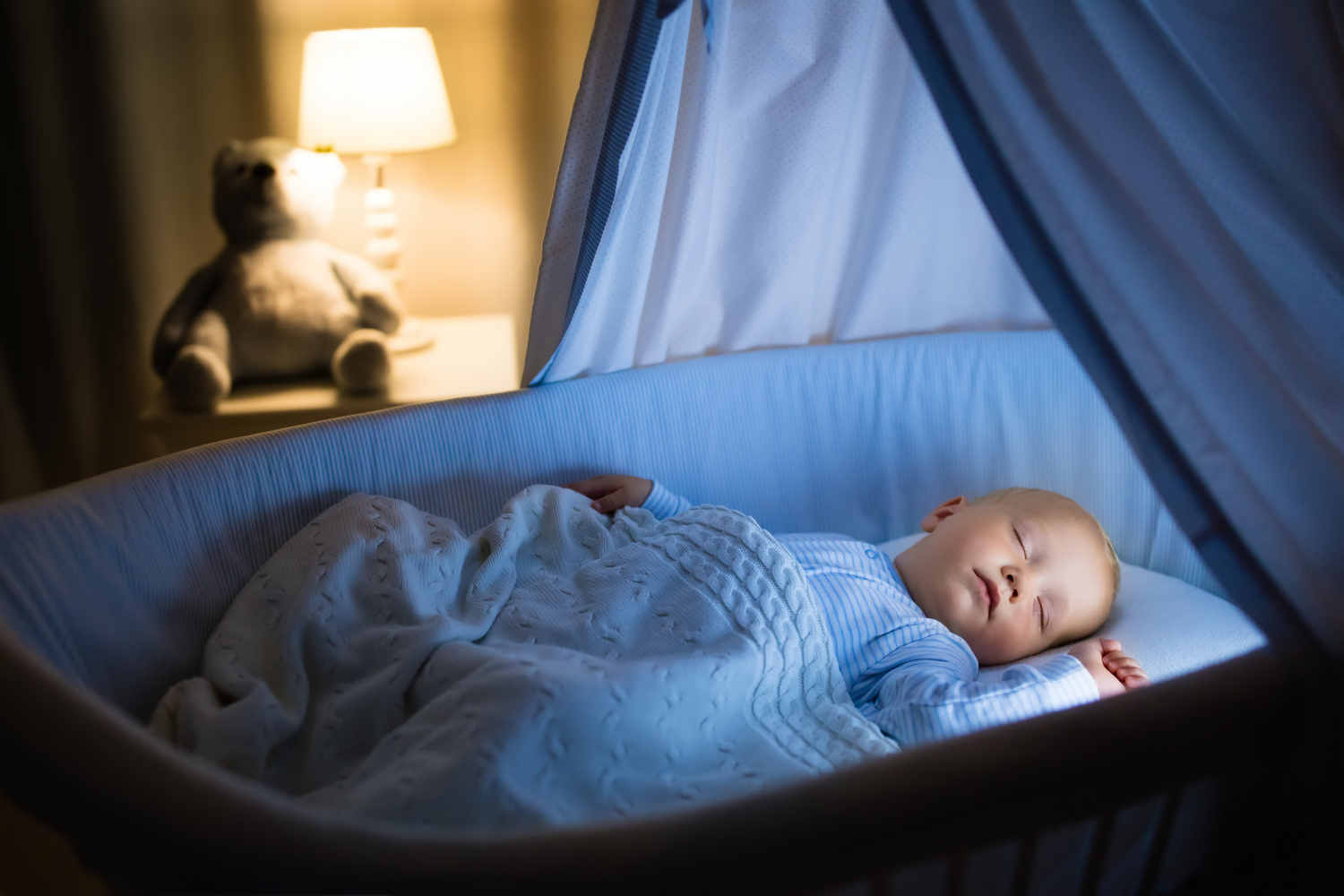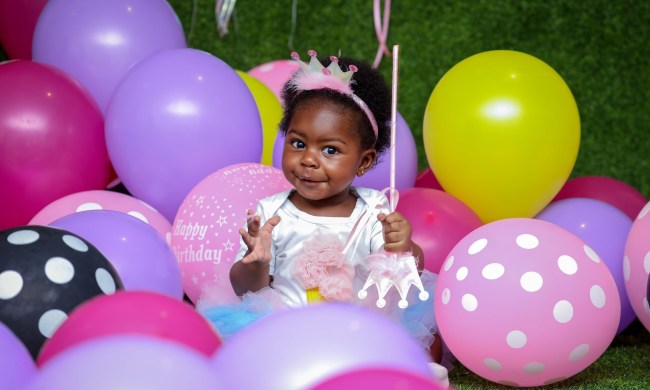Your precious little baby has been wonderful to have at home. You’ve been learning about each other together, and it’s been magical. Except for one minor detail. Your baby will not sleep in their crib. It seems they only sleep when held lately. Is this normal?
Well, yes. Sometimes, some babies will only sleep while in your arms. It was probably adorable at first, but now your only goal is to lay them down on an actual bed. Let’s see what you can do to get there.
Check the room first
First order of business is to check the room the baby is sleeping in. There might be an obvious reason right there that could explain why your baby isn’t sleeping in their crib:
- Check the temperature
- Check the lighting
- Check the noise level
- Sniff around the room
The temperature in the room needs to be cooler. An overheated baby is not a happy baby. There is also an increased risk of sudden infant death syndrome, or SIDS, if the room is too hot. Keep it cool. If the room has a ceiling fan, turn it on. Even if it’s the lowest setting, have it on while baby sleeps.
Blackout curtains
Were you completely silent the entire time you were cooking your baby in your belly? Doubt it. Baby is used to noises and sounds. White noise is best for getting baby to sleep. The fan would work if it makes a little soft sound.
Can you fall asleep when you smell something off? No. You want to know what it is and get rid of it. Your baby has been smelling you and only you for a while. Now they are in a strange room with new smells, and it is probably freaking them out. If you get your scent on their swaddle or sheet, it could calm your baby for bed.

Check your routine
Your baby loves structure and routine. So do you. It’s beneficial for both of you to establish a bedtime routine early and to stick with it. It doesn’t need to be a whole presentation or show you put on for them. If you want to do a story while you feed them before bed, then do that. If you find a bath
Having a routine, whatever it is, is the important bit. They will eventually know that they just had their bath, so now it’s time to drift to sleep. Try your best not to switch up it up while getting your routine set. If you and your partner need it planned and written out, then do that. Your baby (and you of course) need to sleep.
What else you can check
Before taking drastic measures, there are a few other things you can check on:
- What is your baby wearing at bed
- Try a swaddle
- Make sure they are fed
A fun little sleeper is all your baby needs to go to bed. You want a breathable fabric, like cotton, and make sure it fits them properly. You don’t want it too loose where it can come off during their little night tussles.
Sleep sacks
If you can’t go to bed hungry, your baby won’t, either. If your baby hasn’t had a feed recently, that could be why they are being fussy at bedtime. Your newborn will eat what feels like every hour. But you wouldn’t skip dinner before bed, and neither will your baby. But, also be aware of overfeeding your baby as it may cause sleep disturbance.

Other reasons baby hates the crib
If you have checked everything else and baby still isn’t sleeping outside of your arms, there could be other reasons:
- Baby can be having nightmares
- Too much stimulation during the day
- Baby is sick
- Separation anxiety
A baby can have night terrors. It happens. If you are worried about sudden nightmares your baby is having, feel free to make an appointment with your pediatrician to talk about it.
If you’ve had a sudden change in your day-to-day, this could affect how your baby is sleeping. Too much change during the day could make your baby not want to go down for the night.
If your baby is sick, they may not want to sleep. If your baby is constantly crying whenever you try to put them down, there might be a larger issue, such as an ear infection. If you are getting worried, take your baby to the doctor.
Your baby loves you and may only want you. You can ask the pediatrician why “baby only sleeps on me” if it’s bothering you. Your baby could just be going through some separation anxiety and wants extra cuddles to fall asleep.
Know that it is a phase, and it will pass. It may not seem like it ever will, but one day you will miss when your baby only wanted to sleep in your arms. You’ll find yourself chasing them down to get a quick hug in no time.



